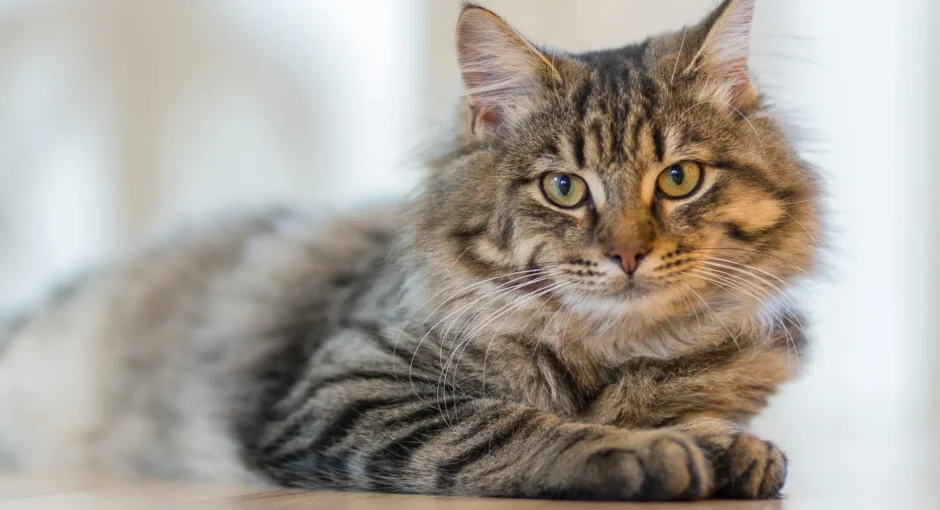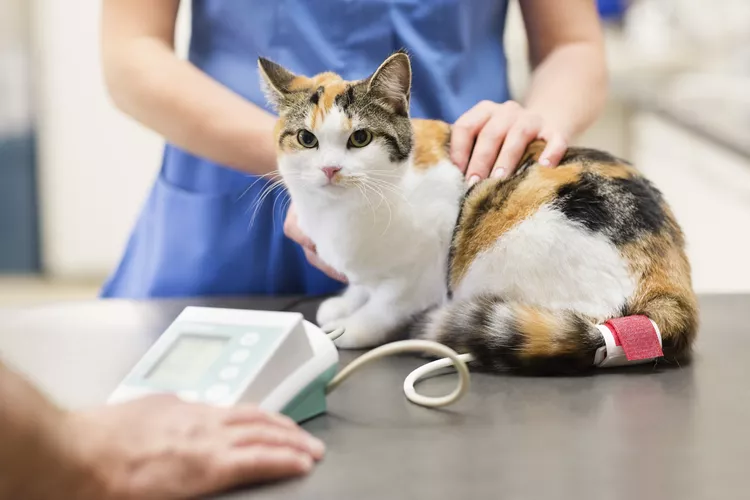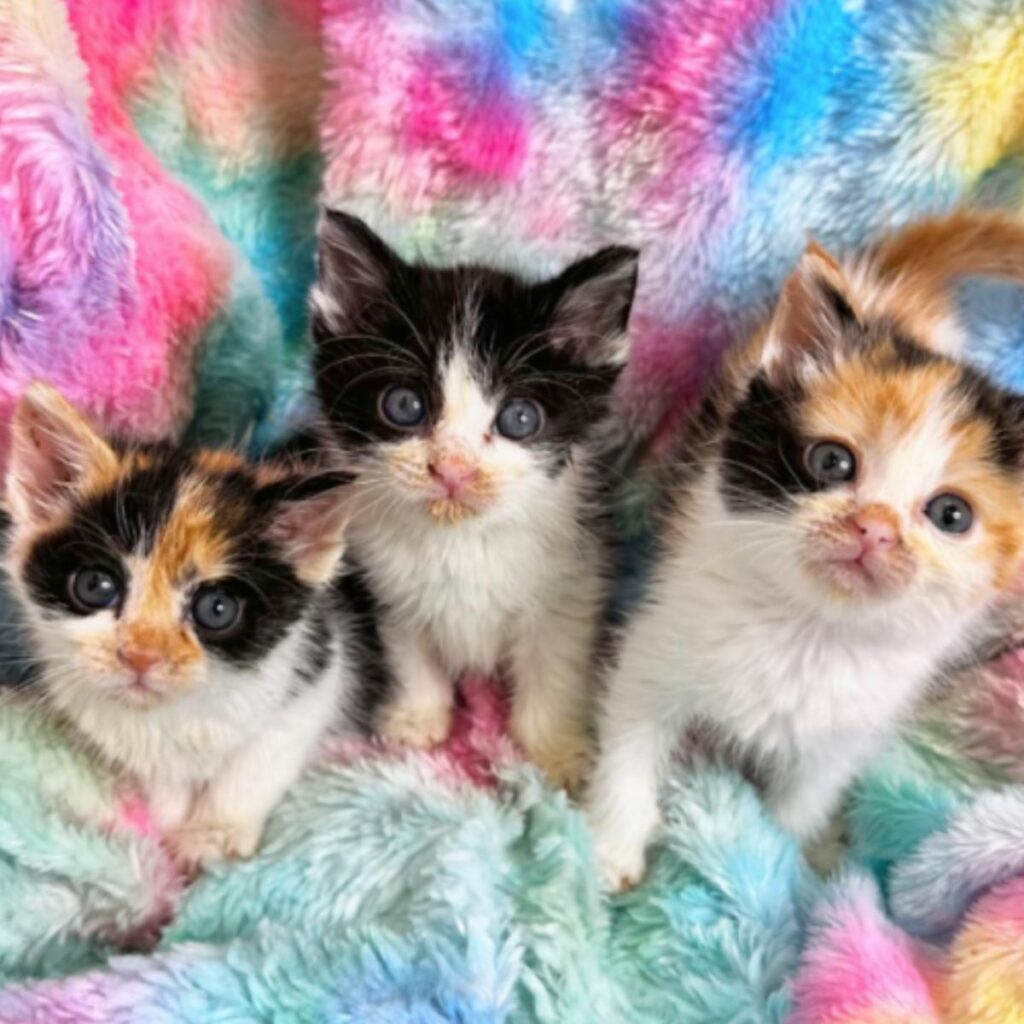Embracing the joys of cat ownership can unlock a myriad of advantages, from nurturing your heart to enriching your social connections. Discover the 10 benefits of owning a cat that go beyond mere companionship. Studies reveal that having a cat can potentially lower one’s risk of various heart diseases, including stroke, by as much as 30 percent. The gentle purring of a feline friend not only soothes the soul but also emits frequencies that support joint mobility after injury, offering a natural form of healing.
But the advantages of having a cat permeate even into the realm of emotional wellness and rest. According to the Mayo Clinic Center for Sleep Medicine, 41 percent of people reported improved sleep quality due to the presence of their pet cat. Meanwhile, single women have noted that men who nurture cats are often perceived as kinder and more caring, shedding light on the social perks of cat ownership. Moreover, the mere action of petting a cat can trigger a cascade of calming chemicals in your system, effectively lowering stress and anxiety levels.
Parents may take interest in the fact that children under a year old exposed to a cat tend to be less prone to allergies, demonstrating the health benefits of having a feline companion early in life. Moreover, engaging with cat content online isn’t just entertaining; it also boosts energy and positivity as per research from Indiana University Bloomington. Within the halls of academia, significant findings demonstrate that reading to live animals, including cats, benefited children with ADHD more than their stuffed counterparts in aspects of sharing and cooperation.
In light of these findings, it’s evident that exploring the reasons to own a cat encompasses health, emotional, and social dimensions, outlining the positive aspects of owning a cat. Whether you’re seeking a boost in mood, companionship, or a step toward a healthier lifestyle, cat ownership continues to affirm its place within the hearts and homes of many. With this in mind, it’s not just about the benefits of petting a cat; it’s about embracing the multifaceted cat ownership advantages that can enrich one’s life in unexpected, yet profound ways.
Reduces stress and anxiety
The link between reducing stress and anxiety and the companionship of cats is more than just anecdotal; it’s grounded in scientific evidence. In the constant hustle of modern life, stress relief and anxiety reduction are paramount to maintaining mental well-being, and cats have proven to be exceptional allies in this pursuit. The calming effect of cats, a subject of numerous studies on stress relief, can be attributed to the simple act of petting these furry friends. This tactile interaction induces a tranquility that’s often immediate, offering respite from the day’s turmoil.
Research on cat therapy unveils that engaging with a feline can act as a stress-buffer, releasing oxytocin—the hormone associated with happiness—and decreasing the production of cortisol, the stress-related hormone. This hormonal response underlines the potency of a cat as a calming presence, making them not just pets, but therapeutic agents in their own right. It is no surprise then that petting a cat for relaxation has transcended pet-owner pleasure, evolving into a recognized form of therapy for those in need of anxiety reduction.
- The soothing purr of a cat and the mutual benefit of a warm lap has a bidirectional effect, fostering an environment conducive to mental rest and recuperation.
- Engagement in cat therapy is not limited to physical interaction; even the presence of a cat in a room can contribute to an atmosphere of serenity and poise.
- The influence of cats on stress levels has been rendered credible through myriad studies on stress relief that highlight how these pets can anchor one’s sense of reality.
This wealth of information presents a compelling case for integrating cat companionship into stress management strategies. As the research arena on this topic continues to expand, the value of cats in fostering mental health leaps from the shadows of skepticism into the light of scientific validation. Whether through quiet companionship or the tactile joy of a gentle stroke, the understated yet undeniable calming presence of a cat can carve rivulets of peace through the rockiest of anxieties.
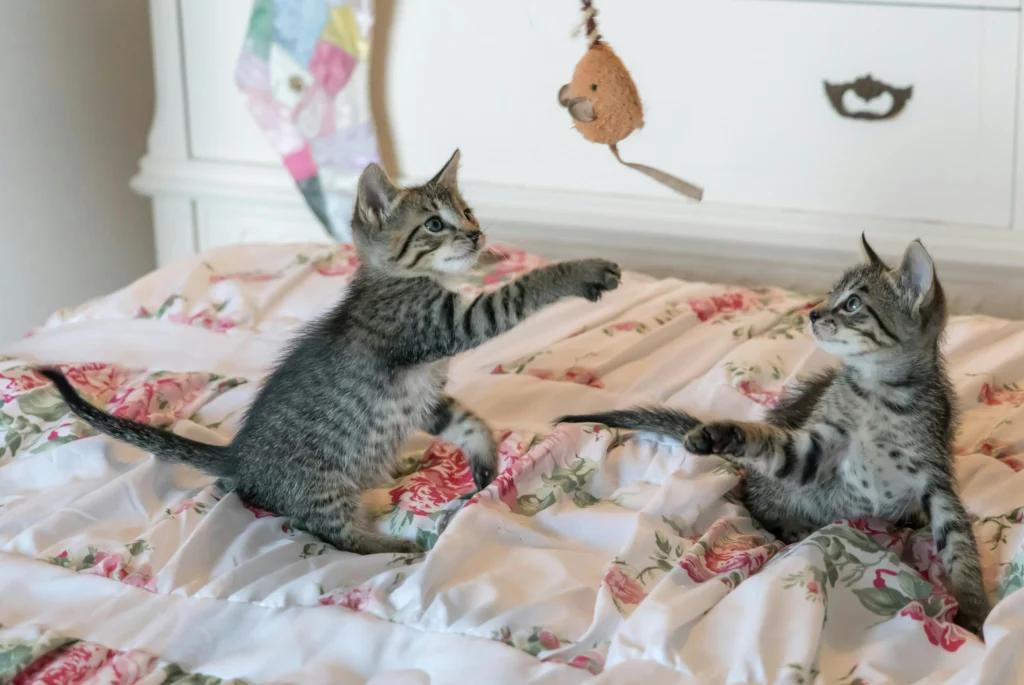
Improves cardiovascular health
The connection between owning a cat and enhanced heart health is more significant than many realize. With the majority of households in the United States owning at least one pet, it’s worth noting the specific cardiovascular benefits of owning a cat. Research on cat ownership and heart health suggests a strong correlation with a lower risk of heart disease, affirming that our feline friends offer more than just companionship.
One compelling indicator of these benefits is evident in studies where cat owners exhibit lower blood pressure and cholesterol levels. Cats provide a calming presence that can mollify the day-to-day stresses, leading to these improvements in cardiovascular markers. Data shows a 1.7 mmHg lower systolic blood pressure and a heart rate decrease of 2.3 bpm in pet owners, highlighting the potential to improve cardiovascular health just by having a cat around.
- Regular interaction with cats may lower the risk of heart disease and stroke.
- Lower cholesterol levels have been associated with the calming effect of pet companionship.
- Cat ownership in households is linked to a reduced risk of heart disease and stroke.
- Engagement with pets, including cats, can contribute to better blood pressure control in hypertensive patients.
Additional research solidifies the reduced risk of heart disease and stroke among cat owners. A landmark study revealed a 24% reduction in the risk of all-cause mortality among dog owners and a significant 65% reduction in mortality for those with prior coronary ailments. In another study by Friedmann et al., dog ownership corresponded to notable declines in both systolic (-2.5 mmHg) and diastolic blood pressure (-1 mmHg) in individuals with hypertension. Such statistics evoke a compelling argument for the therapeutic role cats and dogs play in our cardiovascular welfare.
It’s essential to acknowledge that while pets can offer health benefits, they also require responsible ownership. This includes maintaining proper pet hygiene and regular veterinary care to protect both the pet and owner from potential diseases. For instance, children under five and immunocompromised individuals may be at higher risk for animal-related diseases, emphasizing the need for supervision and preventive measures, such as teaching children to wash their hands after pet interactions.
- Understanding the importance of regular veterinary care and vaccinations to maintain pet health and prevent zoonotic diseases.
- Keeping pets out of certain areas like the kitchen to ensure a safe and hygienic environment at home.
- Implementing diligent cleanup and disposal of pet waste to safeguard households from harmful parasites and germs.
Conclusively, the association between feline companionship and improved cardiovascular health is supported by voluminous research, serving as one of the many reasons to consider cat ownership. Such findings build upon the traditional view of pets as simply family members by underscoring their potential to contribute positively to human health outcomes.
Strengthens the immune system
With 68% of U.S. households being pet owners, a significant body of research, including studies funded by the NIH/Mars Partnership over the last decade, points to the remarkable health benefits of pets on the human immune system. An area of particular interest is the positive effect of exposure to cats and how it may boost the immune system, especially regarding the lower risk of allergies and potentially other immune-related disorders.
One finding suggests that early exposure to pets can be protective, with young children developing fewer allergies and less asthma when they grow up with cats. This aligns with the theory that such exposure can improve immune response and contribute to building a stronger immune system through cat interaction. Remarkably, in certain studies, children at risk for asthma who interacted with cats early in life were less likely to develop the condition unless a parental allergy was present.
- Cat exposure and immunity: Particular attention has been paid to cat ownership, where a 20-year study found a 40% reduced mortality from heart attacks in those who owned cats compared to non-owners.
- Reduced risk of allergies: Besides cardiovascular improvements, interactions with pets have shown a capability to lower the risk of allergies in children, underpinning the importance of pets in fostering immune-related health.
- Immune-related disorders in children: Therapy animals, such as dogs, have been utilized to aid focus in children with ADHD, and those with autism showed calmer behavior when animals like guinea pigs were incorporated into classroom activities.
Additional compelling statistics reveal the expansive influence that pets have over human health, including lowering blood pressure and heart rates in pet owners versus non-owners and better managing type 1 diabetes in teens responsible for pet fish. These insights underscore the significance of animals in strengthening the immune system and offer a compelling argument for the research on immune system benefits from routine animal exposure.
- Pet owners traditionally fare better with levels of cholesterol and triglycerides, suggesting a broader boost to the immune system.
- Specific findings indicate that interaction with trained therapy animals in hospitals and nursing homes can improve mood and lower anxiety, further promoting immune health.
- Notably, psychiatric health also seems influenced by pet ownership, as seen in lesser depression rates among people with AIDS and reduced anxious outbursts in Alzheimer’s patients.
In conclusion, the cat exposure and immunity correlation holds promising potential for enhancing health, encapsulating the long-standing human-animal bond’s therapeutic value and its capacity to strengthen the immune system.
Helps children develop
The nexus between child development and companionship in cat ownership is becoming increasingly evident through research on cat ownership and child development. Studies illustrate that the benefits of cat ownership for children are multifaceted, fostering not only companionship but enhancing social skills, empathy, and responsibility. These findings are crucial as most households in the United States include at least one pet, signifying the broad impact on young individuals nationwide.
Understanding the impact of cats on social skills, recent research observed that children who grow up with pets are more likely to display heightened empathy levels; a study revealed a correlation between children’s attachment to pets and their attitude, which relates directly to their empathy capacity. Family pet ownership during childhood not only shapes the emotional spectrum but also solidifies the foundation of social skills and responsibility in children.
- Preschool children in the company of therapy dogs showed improved performance on object recognition tasks.
- Exposure to dogs during cognitive assessments led children to commit fewer errors on object categorization tasks.
- Less instructional prompting was required for memory tasks when preschool children were accompanied by a dog.
- Pets have also shown to significantly boost the development of social skills in children diagnosed with autism spectrum disorder.
These instances underscore the role of animal-assisted activities in educational and therapeutic contexts. For example, the exercise of children reading to dogs has been recognized as aiding in the growth of their cognitive and emotional faculties. Nonetheless, accompanying benefits also come with responsibilities. Taking into account zoonotic diseases and their higher susceptibility in children younger than 5 years old, it is advised that adult supervision during pet interactions is paramount. Comprehensive hand washing and regular veterinary visits are emphasized to maintain pet health and reduce any risks associated with animal ownership.
- Rigorous washing with running water and soap is crucial to minimize the spread of germs from pets to children.
- Regular veterinary check-ups ensure good pet health and safety for the household.
- Adults must closely watch and instruct children under 5 during interactions with animals, particularly in settings like petting zoos and fairs.
While being attentive to pet-related health precautions, introducing cats into a family setting can be a cornerstone in fostering empathy and responsibility in children, thus contributing positively to their formative years.
Reduces the risk of asthma
Recent findings accentuate the benefits of cat ownership in infancy, particularly highlighting how cat exposure in infancy is associated with a lower risk of asthma in children exposed to cats. This counter-intuitive discovery stems from studies which have closely examined immune system development and its link to reduced sensitization to common allergens. Not only does early cat exposure seem to reduce risk of asthma, but it also contributes to the ongoing conversation about asthma prevention in pediatric health discourse.
While the phrase ‘cat ownership and asthma’ once suggested potential health hazards, emerging research on cat exposure and asthma prevention indicates that responsibly introducing felines to the household environment during a child’s early years could be instrumental for fostering a robust immune system. This paradigm shift aligns with broader health patterns observed among cat owners, which include statistics like reduced instances of strokes and significantly lower blood pressure when compared to non-cat owners.
- Cat owners are statistically at a reduced risk for having a stroke compared to other pet owners.
- Living with cats can result in decreased risks of allergies and asthma due to exposure to cat dander and fur.
- Data show cat owners tend to have lower blood pressure, supporting the heart health benefits of cat companionship.
- A stark contrast emerges regarding heart attacks, where non-cat owners are 30-40% more likely to succumb compared to their cat-owning counterparts.
- A correlation between cat ownership and healthier triglyceride and cholesterol levels has been identified.
Moreover, the social and emotional advantages that accompany cat ownership cannot go unnoticed. Studies have underscored how having a cat can enhance sociability and socializing skills, particularly among women, and can significantly reduce feelings of loneliness, as indicated by a Swiss study. These aspects, combined with the lower carbon footprint associated with the resources needed to feed and care for cats, make the idea of welcoming a feline friend into one’s life not only a heart-friendly decision but also an environmentally conscious one.
Deepening our understanding of the connection between pets and owner well-being, a long-term study revealed that cat owners showed a 30% lower risk of death from heart attack over a decade of follow-up. These findings not only advocate for the immune system development and asthma prevention associated with feline companionship, but they also suggest broad, systemic health benefits that affirm the overall benefits of cat ownership in infancy and beyond.
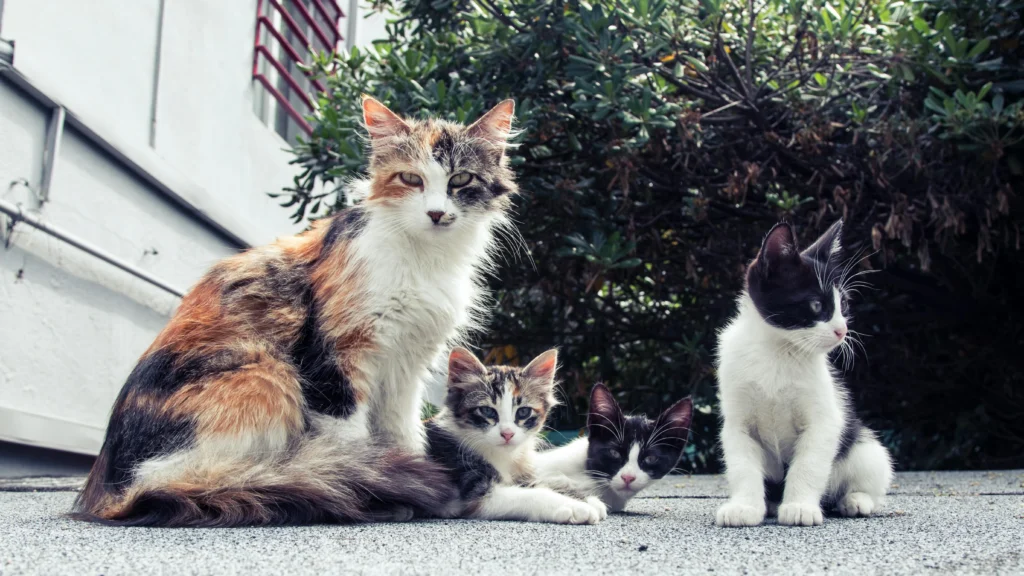
Encourages physical activity
Encouraging physical activity is essential for maintaining an active lifestyle, and surprisingly, one of the delightful ways to achieve this is through playtime with cats. Most households in the United States have at least one pet, and cats are among the most common due to their playful and affectionate nature. By engaging in daily exercises with cats, owners not only foster a bond with their feline friends but also reap the benefits of playtime with cats.
Incorporating cat toys for exercise is a simple and effective method to motivate both pets and their owners to move more. Engaging in interactive play with cats, such as using feather wand toys or laser pointers, can lead to healthier and more active routines. This form of play is not only fun but also serves as a form of exercise, promoting muscle coordination and agility.
- Chasing – Indulging in a spirited game of chase with balls or motorized toys.
- Fetching – Some cats enjoy retrieving small objects, much like dogs.
- Wand toys – Simulating prey movements to indulge a cat’s hunting instinct.
- Obstacle courses – Creating a stimulating environment with tunnels and shelves.
While encouraging an active lifestyle through these activities, it’s also essential to consider pet and human health. Households with vulnerable individuals like children younger than 5 years old, people with weakened immune systems, and older adults should practice good hygiene after playtime. Washing hands thoroughly and maintaining regular veterinary visits are crucial for preventing the spread of diseases. Additionally, the effective management of pet habitats and feces is key to maintaining a clean environment and minimizing the risk of illnesses such as Lyme disease and Rocky Mountain spotted fever, which can be spread by pet-carried ticks.
The health benefits of an active lifestyle for pets and owners alike are numerous and contribute to overall well-being. As we embrace interactive play with cats, we not only foster our furry friends’ health but also enhance our own physical fitness, paving the way for a happier, more active, and connected life.
Helps you sleep better
The quest for improved sleep quality is one many of us pursue, and surprisingly, the answer may reside in the calming effect of a cat’s presence. With research on cat’s calming effect on sleep revealing a link between our feline friends and restful slumber, it’s worth delving into the sleep benefits of owning a cat. Cat owners often note the soothing sound of purring as a peaceful backdrop to their nightly rest.
Statistics suggest between 10 to 30 percent of individuals identify as “cat people,” perhaps attributing to their better psychological health as compared to non-pet owners. A sense of companionship and the benefits of cat presence in the bedroom lay the foundation for improved sleep patterns with cats. This relationship has been reflected in surveys – for instance, young Scots who share a strong bond with their cats boast a higher quality of life, possibly due to the enhanced downtime they experience.
- Owners rave about fewer negative emotions and a decrease in feelings of isolation when cats are part of their households.
- Studies indicate that not only do cat owners enjoy lower resting heart rates and blood pressure, but their stress response is also uniquely positive, feeling more invigorated rather than intimidated by challenges.
- Moreover, cat owners bring into the bedroom a social sensitivity, an elevated level of trust, and an overall enjoyment of people, perhaps owing to the very fact they own a pet.
- Evidence even points towards long-term health benefits, with previous cat owners witnessing a reduced risk of heart attack fatalities.
- Fresh cat owners find themselves reporting fewer health complaints following the adoption of their furry companion.
This data paints a picture in which the mere presence of a cat extends beyond mere company; it delineates a path towards a more serene lifestyle, where the myriad benefits of cat presence in the bedroom include tangible health perks. To possess a slumber disturbed not by the day’s stress but soothed by the lullaby of a cat’s purring, it propels the idea that our feline friends are custodians of not only our homes but of our overall well-being.
Reduces loneliness
With 68% of U.S. households having a pet, the companionship that animals provide is undeniably valuable. Cats, in particular, play a crucial role in reducing loneliness and offering emotional support. Their ability to alleviate feelings of isolation is backed by ongoing research on cat companionship and loneliness, suggesting the presence of a feline friend can positively influence an individual’s emotional well-being.
Inviting a cat into your home means more than just adopting a pet—it’s welcoming a creature capable of providing companionship and emotional support. The benefits of owning a cat for emotional well-being are evident, as these animals inherently sense when their owners need comfort, often curling up beside them and providing solace without needing even to purr.
- Cats can help reduce loneliness through their constant presence, offering a warm and sentient companion to come home to.
- The National Institutes of Health (NIH), in partnership with the Mars Corporation’s WALTHAM Centre for Pet Nutrition, acknowledges the benefits of owning a cat in bringing about a sense of emotional fulfillment.
- Responsibly caring for a cat creates a routine, fostering a sense of purpose and alleviating feelings of isolation.
For those living alone or facing challenging times, the company of a cat reduces loneliness and acts as a buffer against the stress of daily life. Cats do not only offer companionship, but their care also involves engaging activities that redirect focus and help structure one’s day.
- Watching your cat leap and play can be a joyful distraction, reducing stress levels as shown by their effect on lowering cortisol and blood pressure.
- Therapy cats in hospital settings illustrate that the simple presence of an animal can have profound impacts on stress and anxiety reduction.
- Cat ownership encourages mindfulness as caring for them anchors you in the present moment, creating a mental break from worries and solitude.
The bond between a cat and its owner is one of silent understanding and loyalty. It’s this very bond that provides companionship and emotional support, making a significant difference in one’s life. When it comes to alleviating feelings of isolation, the silent purrs and the soft nuzzles of a cat are often more than enough to lift spirits and bring comfort to a lonely heart.
Helps you make new friends
Embracing the shared interests through cat ownership isn’t just about the joys of feline companionship; it’s a gateway to social interaction and forming new relationships. Most households in the United States have at least one pet, providing a common thread that can help to make new friends. Let’s delve into how the benefits of cat ownership for social interaction extend beyond your cozy living room.
Bonding over pets, particularly cats, can lead to cat-related activities and events that bring individuals together. From casual encounters to more orchestrated gatherings like cat shows and communities, those events are perfect for enriching your social circle. 85% of couples even say that taking care of a pet together made them feel emotionally closer—a testament to how cats can foster human connections.
- Attend cat shows, where the love for these majestic creatures turns into an entire culture, celebrating breeds, beauty, care, and companionship.
- Participate in cat-themed communities, both online and in-person, to find support, swap stories, and learn from fellow cat enthusiasts.
Establishing connections at these cat-related events for making new friends is a heartwarming process. The joy of discussing everything from grooming tips to adoption stories forms a bond that often extends into lasting friendships.
Moreover, the benefits of cat ownership for social interaction are also felt within intimate relationships. Sharing a pet can lead to a 60% increase in shared activities between partners, enhancing the quality of their time spent together.
- Cat ownership can be an excellent foundation for conversations and shared responsibilities, perfect for breaking the ice and building friendships.
- Such shared responsibilities make 70% of couples see their partners in a new light, promoting growth and understanding within the relationship.
In conclusion, cats offer more than companionship—they create opportunities for their owners to engage in various cat-related activities and events for making new friends. Whether it’s through attending local cat shows or joining cat-themed communities, the love of cats unites people and paves the way for enriching social interaction and friendships.
Brings joy to life
The companionship of cats is more than a mere comfort; it’s a catalyst for happiness and a profound contributor to emotional well-being. The benefits of cat ownership for emotional well-being are numerous, reflecting a deep bond between humans and their feline friends that transcends companionship to touch the soul. Here are some compelling reasons why the unconditional love and companionship of cats are unmatched in bringing joy into your life:
- Longevity of Life Together: With cats renowned for their longer lifespans, some reaching up to 20 years, their presence is a longstanding source of joy.
- Heartfelt Companionship: Studies indicate that cat owners have a lower risk for heart disease and stroke, painting a clear picture of the positive impact of cat companionship on physical and emotional health.
- Allergy Buffer: Early exposure to cats can help children develop a reduced likelihood of allergies, nurturing a lifelong bond that contributes to a healthy start to life.
- Urban Living: Well-suited for smaller spaces, cats make ideal pets for city dwellers, proving that joy doesn’t require vast expanses, but can be found in the purring beside us.
- Self-Reliance: Celebrated for their independence, cats allow for the enjoyment of pet ownership without the need for constant attention, which in itself can be a stress reliever.
- Pest Control: As natural hunters, cats help in keeping your home free from unwanted pests, enabling a clean living space essential for peace of mind and happiness.
- Stress Reduction: The simple act of spending time with a cat can profoundly lower stress levels, reduce anxiety, and boost happiness.
- Communal Connections: Cat ownership can inspire increased socialization and foster relationships, reflecting the positive impact on happiness through community.
- Sense of Purpose and Decreased Loneliness: Providing care for a cat brings a sense of responsibility that is especially valuable for older adults, while their companionable nature combats feelings of loneliness.
- Restful Nights: The serene presence of a cat and the soothing sound of their purr can contribute significantly to improved sleep quality, essential for a joyful life.
- Stronger Health and Longevity: Finally, owning a cat could lead to a longer, healthier life free from common ailments, ensuring more time for joyous moments together.
It is clear that the positive impact of cat companionship not only lies in the realm of physical health but extends to enriching the human spirit. By acknowledging the extensive benefits of cat ownership for emotional well-being, we uncover a timeless truth—the unconditional love and companionship of cats are irreplaceable agents in bringing joy to life.
Conclusion
The journey through the myriad of benefits of owning a cat has shown how significant the feline presence can be in our lives. With a potential companionship spanning up to two decades, cats not only promise long-term companionship but also bring along a plethora of health benefits that are hard to ignore. Empirical data accentuates the positive impact of cat ownership, where a furry companion in your household can mean a reduced risk for heart disease and stroke—testament to a cat’s influence on cardiovascular health. But the benefits extend beyond mere physical health.
Exploring the psychological and emotional constellations, we’ve seen that cats are more than just pets but a source of comfort that alleviates loneliness and nurtures well-being. Whether it’s through the unconditional love they offer or the natural relief from stress and anxiety, the reasons to own a cat are as compelling as they are numerous. Moreover, incorporating their care into our daily routine, such as regular grooming, harmonizes with maintaining a clean and pleasant living environment. Furthermore, a well-balanced diet stands as a mutual commitment to health, epitomizing symbiotic lifestyle enhancements.
Through a blend of scholarly research and practical wisdom, it’s clear that the payoff from welcoming a feline friend into our homes is multifaceted. Reports like the Global GfK survey and Japan Pet Food Association’s findings frame pet ownership as a fulcrum for personal growth and learning, while studies by well-regarded academics like Beetz et al., Serpell, or Turner et al. substantiate the profound psychosocial and psychophysiological effects cats have on humans. In recognition of these findings, this conclusion echoes the sentiment that cats are indefatigable engines of joy, ensuring their status as unmatched companions in enriching human lives. Embracing the myriad benefits of owning a cat may well be one of the most heartwarming and health-enhancing decisions a person can make.
